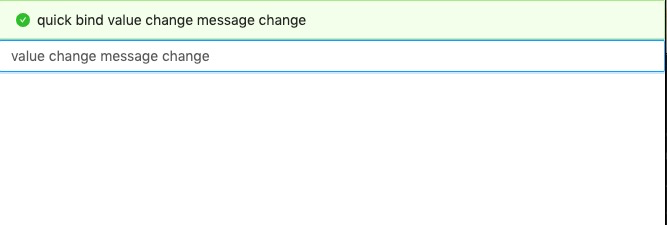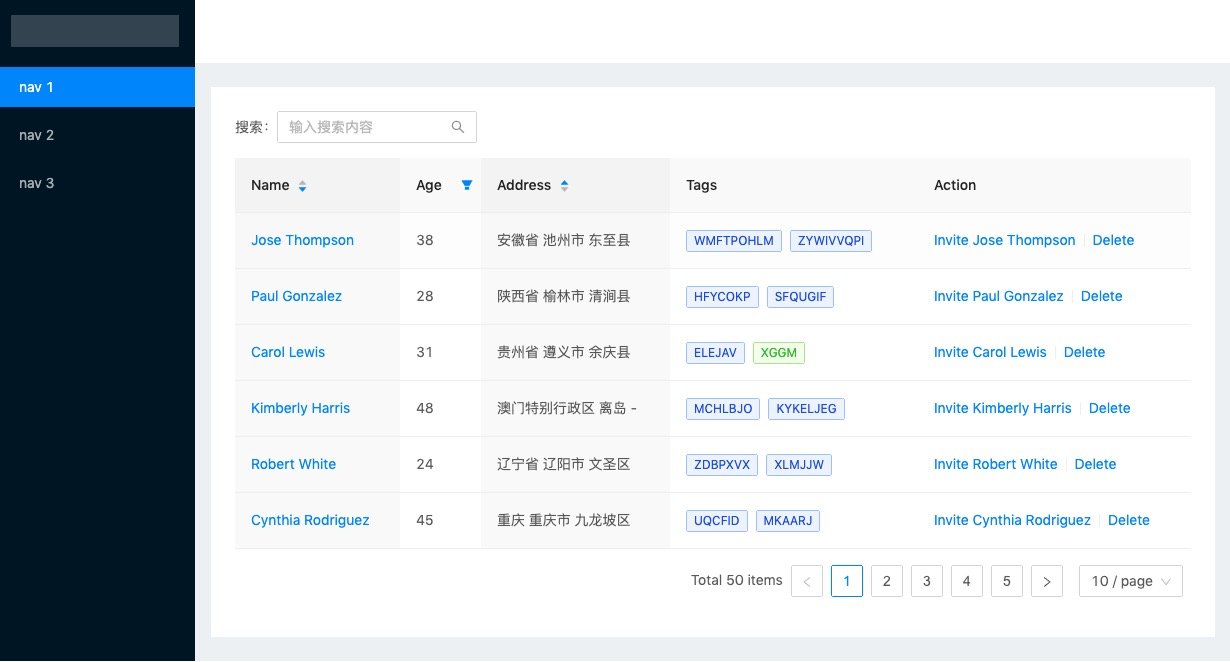Eficy, a front-end orchestration framework.Can orchestrate any React components library through JSON configuration, simple configuration can generate complete page.
Recommended for use with component libraries: AntD
English | 简体中文
- Use JSON to orchestrate any React component library to quickly form a usable page
- Built-in Mobx Store, no need to care about store changes for page development
- Built-in request mechanism, simple configuration can complete data request
- Built-in two-way binding for easy configuration page synchronization in real time
- Refine the scope of component changes, and view component rendering performance in real time
- Support Plugin customization, can uniformly configure HOC, easily achieve front-end OOP
- suitable for large multi-page applications
- Works seamlessly with AntD 4.0+
 IE / Edge |
 Firefox |
 Chrome |
 Safari |
 Electron |
|---|---|---|---|---|
| IE11, Edge | last 2 versions | last 2 versions | last 2 versions | last 2 versions |
npm install @eficy/core --saveyarn add -S @eficy/coreImport from Script:
<script src="https://unpkg.com/@eficy/core"></script>Render to DOM:
import * as Eficy from '@eficy/core';
import antd from 'antd';
// config global default componentMap
Eficy.Config.defaultComponentMap = Object.assign({}, antd);
Eficy.render(
{
'#view': 'div',
style: {
padding: 10,
background: '#CCC',
},
'#children': [
{
'#view': 'Alert',
message: 'Hello this is a Alert',
type: 'info',
showIcon: true,
},
],
},
'#root',
);Render as ReactElement:
import * as Eficy from '@eficy/core';
import antd from 'antd';
// config global default componentMap
Eficy.Config.defaultComponentMap = Object.assign({}, antd);
const App = () => {
return Eficy.createElement({
'#view': 'div',
style: {
padding: 10,
background: '#CCC',
},
'#children': [
{
'#view': 'Alert',
message: 'Hello this is a Alert',
type: 'info',
showIcon: true,
},
],
});
};In Browser use:
<link rel="stylesheet" href="https://unpkg.com/[email protected]/dist/antd.min.css" />
<script src="https://unpkg.com/[email protected]/dist/antd.min.js"></script>
<script src="https://unpkg.com/@ant-design/[email protected]/dist/index.umd.js"></script>
<div id="root"></div>
<script>
Eficy.Config.successAlert = ({ msg }) => antd.message.success(msg);
Eficy.Config.failAlert = ({ msg }) => antd.message.error(msg);
Eficy.Config.defaultComponentMap = Object.assign({}, antd, { Icons: icons });
Eficy.render(
{
'#view': 'div',
style: {
padding: 10,
background: '#CCC',
},
'#children': [
{
'#view': 'Alert',
message: 'Hello this is a Alert',
type: 'info',
showIcon: true,
},
],
},
'#root',
);
</script>export default [
{
'#view': 'Alert',
message: 'quick bind ${models.input.value}', // => will be output as "quick bind value"
type: 'success',
showIcon: true,
},
{
'#': 'input',
'#view': 'Input',
value: 'value', // => value change will be sync to Alert message
},
];Update view based on async results:
export default {
views: [],
requests: {
immediately: true,
url: 'https://mock.xiaobe.top/mock/5da6e8bf6aac2900153c9b7e/request/reload',
},
};Fill the data according to the async return result:
export default {
views: [
{
'#view': 'Table',
'#request': {
'#': 'getTableData',
url: 'https://mock.xiaobe.top/mock/5da6e8bf6aac2900153c9b7e/table/getlist',
format: res => ({
action: 'update',
data: [
{
'#': 'table',
dataSource: res.data,
},
],
}),
},
pagination: {
total: 50,
},
columns: [
...
],
},
],
};




